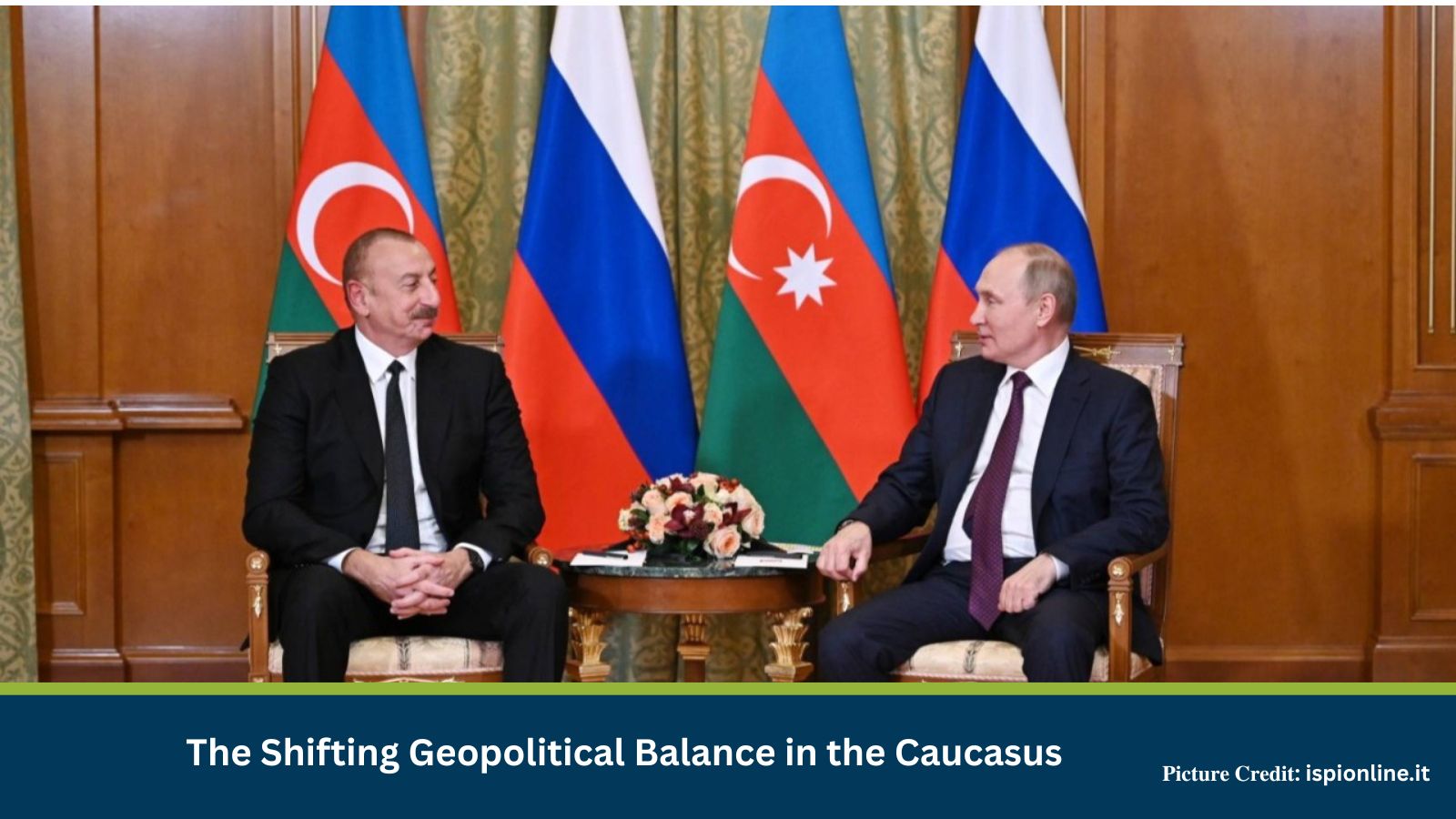There is trouble in the Caucasus again, this time between Russia and Azerbaijan. A series of events have pushed the once pragmatic relationship into rapid decline.
In December 2024, an Azerbaijani passenger plane crashed in Kazakhstan, reportedly after being hit by a Russian missile. President Putin issued a formal apology, but Kremlin refused to take responsibility or offer compensation. Public anger led Baku to ground Russian aircrafts and suspend trade agreements.
In June 2025, Russian Police in Yekaterinburg detained several dozen ethnic Azerbaijanis in connection with a series of murders that took place 15 years ago. While in custody, they were reportedly beaten, and two brothers – the main suspects in the case, subsequently died.
The Azerbaijani authorities accused Russian forces of deliberately killing their nationals. They shut down Russian cultural centers, raided the Baku office of Sputnik news agency, arresting media personnel and Russian IT specialists. This was accompanied by harsh criticism in state media.
Relations have collapsed. Pragmatism has given way to deep mutual suspicion and open confrontation.
History
Azerbaijan, a resource-rich, Muslim-majority, former Soviet Republic, sharing 210 miles land (and Caspian Sea) border with Russia, gained independence in 1991, following the collapse of the USSR. It remained a part of Commonwealth of Independent States (CIS) – a grouping of former Soviet republics, and Russia-led collective security grouping for many years.
Trust Erodes over Nagorno-Karabakh
As the Soviet Union dissolved, Nagorno-Karabakh, an ethnic Armenian-predominant enclave within Azerbaijan, supported by neighboring Armenia, declared independence. Azerbaijan accused Russia of supporting Armenia politically and militarily.
Azerbaijan started looking westward. In 1994, it joined NATO’s Partnership program. In 1999, Azerbaijan chose not to renew its membership of the collective security treaty. It began building closer ties with NATO, including by contributing troops to NATO missions in Kosovo and Afghanistan. However, it continued to maintain a strategic balance with Russia.
In September 2020, Azerbaijan launched a military offensive to capture Nagorno-Karabakh. Turkey supplied advanced military technology and operational support. Russia, despite its alliance with Armenia, a CSTO member, did not intervene militarily. It brokered a ceasefire and deployed Russian peacekeepers.
In September 2023, as Russia was preoccupied in Ukraine, Azerbaijani forces launched a military offensive, took full control of Nagorno-Karabakh and ordered Russian peacekeepers out. They received support from Turkey and Israel.
The Shifting Geopolitical Chessboard
The Eurasian chessboard is shifting. The Russian dominance in Caucasus is fading. This gives regional powers, the EU, and the US more leverage in the region.
Azerbaijan, backed by new partnerships with regional powers, is leveraging its energy exports, geographic location, and military modernization to reshape the dynamics of the Caucasus. Azerbaijan’s rich reserves of energy make it attractive to Europe.
Tehran has accused Baku of allowing Azerbaijan’s airspace to be used by Israel during Op Rising Lion. Russia’s lack of support to Iran and Baku’s deepening ties with Israel could leave Iran vulnerable on its northern flank.
Armenia, disappointed with lack of support from Russia, sees value in peace. In a highly symbolic visit, Armenian PM Nicole Pashinyan visited Turkey in June. Zangezur – a proposed Transport Corridor to connect Azerbaijan with its Nakhchivan Enclave, passing through Armenia, may hold the key. Armenia wants control including customs and security. Azerbaijan wants third party guarantees, a demand Turkey supports. EU could emerge as a possible guarantor at the expense of Russia.
Questions that need to be answered are:
- Will Russia and Azerbaijan tensions escalate?
- Will the Zangezur Corridor symbolize peace and reconciliation in the region?
- Will the Caucasus become a new arena of US influence?
- How will Iran respond to Azerbaijani-Israeli cooperation?
𝐃𝐢𝐬𝐜𝐥𝐚𝐢𝐦𝐞𝐫: This post references open sources including Carnegie Endowment and The Print.
MitKat’s AI-powered risk intelligence platform, datasurfr continuously monitors global risk events. Book a demo today
Mitkat helps organisations navigate uncertain times by providing comprehensive insights about the evolving risk landscape. We offer various services including Risk consulting and Security Design, Protective Services, and cyber security services which ensure organisations become Risk Intelligent. Our AI-powered operational risk monitoring tool, datasurfr combined with expert insight enables companies to stay abreast of evolving operational risks and emerging developments.






